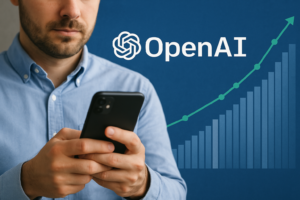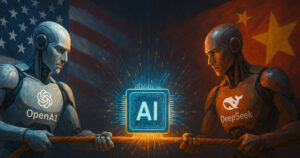Plaintiffs Advocate for Extended Deposition of OpenAI Chief Brockman in US Court

OpenAI President Faces Legal Scrutiny in Copyright Case
Overview of the Situation
Recent legal battles involving OpenAI have drawn attention, particularly around the role of its President, Greg Brockman. Major news organizations, including The New York Times, have expressed their intentions to push for extended depositions from Brockman concerning lawsuits linked to OpenAI’s use of copyrighted materials for training its artificial intelligence models. The crux of the matter revolves around whether Brockman, a significant contributor to the establishment of OpenAI, can be shielded from extensive questioning due to the apex witness doctrine, which is designed to limit the testimony requirements for high-ranking executives in legal proceedings.
Pressures from Media Organizations
In a joint statement, various plaintiffs, which include prominent media outlets, argue that the apex witness doctrine should not apply to Brockman in this instance. They contend that the legal context surrounding the use of copyrighted works is so significant that Brockman’s insights and experiences are vital to understanding the implications of OpenAI’s actions. The media organizations are urging the federal judge to mandate Brockman to participate in longer depositions to clarify OpenAI’s approach to using copyrighted content in the training of AI systems.
Insights into the Apex Witness Doctrine
The apex witness doctrine is a legal principle that protects high-ranking company officials from being deposed unless absolutely necessary. It helps in ensuring that the company’s operations are not disrupted by excessive legal inquiries into the activities of its top executives. However, arguments against this protection often highlight that transparency is crucial, especially when it involves ethical concerns about the use of copyrighted materials.
Implications for OpenAI
The developments in this legal matter could have wide-reaching consequences for OpenAI and its operations. If the court sides with the plaintiffs and Brockman is required to testify, it could set a precedent for how AI companies handle copyrighted content. Additionally, this case might spark broader discussions about the legal frameworks surrounding AI development and the ethical use of data.
Importance of Regulation in AI Sector
The ongoing legal scrutiny emphasizes the urgent need for clearer regulations within the AI industry. As AI continues to evolve rapidly, it becomes increasingly necessary for companies to navigate copyright laws effectively. Greater transparency and accountability will help to mitigate the risks associated with potential misuse of copyrighted materials in training AI systems.
Monitoring Changes in Regulation
Organizations, including legal and business entities, need to stay informed about regulatory changes and their potential impacts. Following developments like these lawsuits is essential for corporations to adapt their strategies accordingly. Businesses should consider subscribing to news sources like MLex, which offers daily updates on relevant regulatory affairs.
Features to Consider
When looking for reliable information on regulatory changes, consider the following features provided by MLex and similar platforms:
Daily Newsletters: Receive updates on various topics, such as antitrust issues, mergers and acquisitions, and data privacy.
Custom Alerts: Tailor notifications for specific industries or geographies that are relevant to your organization’s interests.
Expert Predictions: Access analytical insights from seasoned journalists in regions worldwide, including North America and Europe.
- Curated Case Files: Gather comprehensive information, including news articles, analyses, and legal documents on ongoing cases.
Engaging with these resources can be particularly beneficial for organizations aiming to navigate the complexities of regulatory frameworks in the AI sector. In a landscape that is constantly changing, obtaining the right intelligence can make a significant difference in decision-making processes and operational strategies.
Thus, the ongoing developments in the OpenAI lawsuit serve as a critical reminder of the intersection of technology, law, and ethics in the rapidly advancing field of artificial intelligence.





